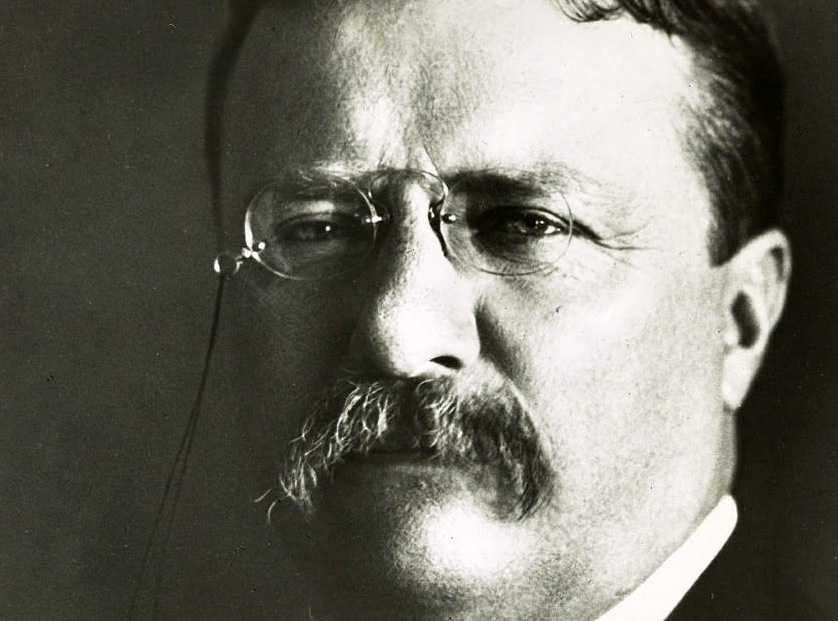The Value of Speaking Softly In Leading a Team
By Craig Covello, PMP:
Perhaps you have heard the phrase, “Speak softly and carry a big stick.” Let’s explore how leaders and project managers can use this axiom to effectively lead their teams.
There’s some dispute regarding the origin of this phrase, but many believe that Theodore Roosevelt first used the phrase in a speech at the Minnesota State Fair on September 2, 1901. It was meant to be a corollary to the Monroe doctrine, and suggested that a nation of sufficient military strength does not need to verbally saber rattle in order to achieve its foreign policy objectives.
According to Wikipedia, Roosevelt attributed the term to a West African proverb, “Speak softly and carry a big stick; you will go far.” Whatever its beginnings, I think we can agree that there’s some validity to this statement which transcends generations, not only for nations but for individuals as well. Those individuals would include project managers who often find themselves with immense responsibilities but very little direct control over project participants under the temporary and somewhat artificial matrixed organizational structure. Some have metaphorically described this situation as “herding cats,” but perhaps we should simply focus upon one metaphor at a time, so let’s discuss the phrase “Speak softly and carry a big stick.” from the project manager’s perspective.
If you think about it, it seems intuitively obvious that the louder, more intense or more frequent the message, the less credibility or respect the messenger garners. Advertising comes to mind. Does it really make sense for a sales organization to spend large sums of money in order to get your attention, followed by a loud, obnoxious announcement warning you to act now because inventory is being depleted faster than anticipated? Of course not. They are simply trying to manipulate with a hard sales pitch. Why spend advertising dollars if you can’t keep up with consumer demand? This suggests that there is an inverse relationship between the volume of the message with its relative importance – at least when it comes to motivation.
This truism can be leveraged by the project manager, if indeed the project manager provides value to the team. Stakeholders and participants require a strong project manager to define the goals, level-set expectations, guide the process, elevate issues, communicate results, resolve conflict and deliver on time and within budget. In contrast, project participants do not have this power or perspective. Instead, they are interested in achieving success defined by a narrower set of more focused and specific objectives, depending upon the context of their title, responsibility and skill set.
This also implies that the success of the members of your project team are fully dependent upon your continued support as PM, perhaps more than you may realize. Still, I sometimes encounter a reverse attitude among higher maintenance personalities, particularly ones who have adopted an attitude believing that a specialized skill set or unique organizational niche unconditionally assures their continued employment.
So how do you motivate someone on your project team who has the mistaken notion that they control the situation more than you do? Perhaps the answer is to simply speak softly while communicating your expectations. And what about the metaphoric “stick” that Teddy Roosevelt suggested? Well, perhaps the stick really isn’t the threat of punishment, particularly in the setting of a matrixed organizational structure. It’s the power derived from having command over project information at your fingertips. Knowing and continually softly communicating information vital to the success of your team members will get their attention.
Remember that memories are short and require a leader to remind the team about details associated with the project’s goals, executive sponsorship, budget, implementation plan and previously negotiated agreements and decisions. This information will garner attention and respect, so there is really no need to raise your voice, talk fast or interrupt in order to make yourself heard. Just relax and speak softly in a measured tone that expresses confidence and control. Your team members will listen attentively, because they will realize that it is in their best interest to understand exactly what you have to say.
A few years back at Bank of America, I attended a meeting chaired by a senior vice president who was so valuable that his business travel included frequent trips between Asia and Northern California. He was a high-visibility executive who knew the power of speaking softly. In fact, it was rather entertaining to watch him manipulate some of his vice presidents and directors by intentionally keeping his voice so low that they had to lean forward in order to catch every word.
Admittedly, this power was derived from his position as a senior vice president, but that’s exactly my point. Your power can also be derived by your position as a project manager if you are organized, focused and able to get your arms around the big picture while absorbing and recording details that others may find too tedious or overwhelming. Don’t use these details to micromanage, because that robs team members of responsibility and accountability. However, if you have the ability to support others by drilling down as needed, with anyone on your team in sufficient detail, then there’s no need to compete in order to be heard.
Speak softly with something valuable to say and they will listen.





